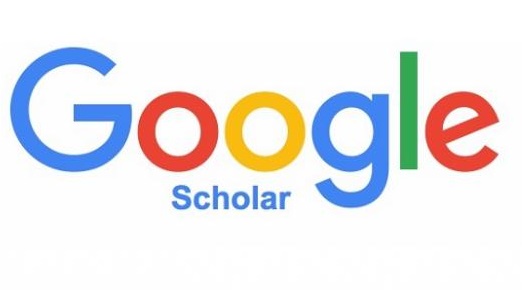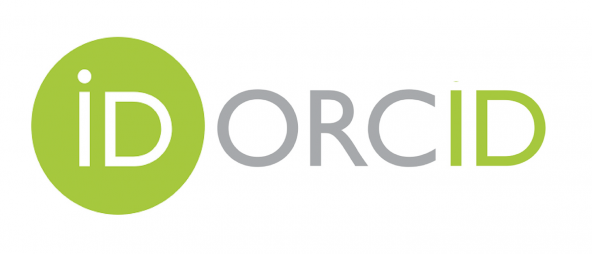- Focus and Scope
- Section Policies
- Peer Review Process
- Open Access Policy
- Archiving
- PUBLICATION
- OPEN ACCESS POLICY
- ARCHIVING
- AIMS
- AUTHOR(S)’ PUBLICATION ETHICS
- PLAGIARISM SCREENING
- ETHICS STATEMENT
- Author Fees
Focus and Scope
This journal is dedicated to publishing reports on community service activities conducted in diverse community settings. It serves as a platform for disseminating the outcomes of community engagement efforts, whether in the form of tangible products, innovative modules, or effective methods. This journal emphasizes the importance of bridging academic knowledge with real-world applications to address societal needs.
As a community service journal, it welcomes contributions from multidisciplinary fields, including health sciences, education, arts and humanities, engineering, computer science, and social sciences. By fostering collaboration and knowledge sharing, this journal aims to inspire impactful initiatives that promote sustainable development and community empowerment.
This journal is published twice a year, in April and October.
Section Policies
Articles
Peer Review Process
All papers are fully peer-reviewed. We only publish articles that have been reviewed and approved by highly qualified researchers with expertise in a field appropriate (at least two reviewers per article). We used blind peer-reviewing process. Detailed information about the flow for the manuscript submission (author) to the acceptance by editor is shown in the following figure.
Open Access Policy
This journal provides immediate open access to its content on the principle that making research freely available to the public supports a greater global exchange of knowledge.
Archiving
This journal utilizes the LOCKSS system to create a distributed archiving system among participating libraries and permits those libraries to create permanent archives of the journal for purposes of preservation and restoration. More...
PUBLICATION
This journal will be published two times a year on the following months: April and October. Every issue consist of 5 articles.
OPEN ACCESS POLICY
This journal provides immediate open access to its content on the principle that making research freely available to the public supports a greater global exchange of knowledge.
This work is licensed under a Lisensi Creative Commons Atribusi-BerbagiSerupa 4.0 Internasional.
ARCHIVING
This journal utilizes the LOCKSS system to create a distributed archiving system among participating libraries and permits those libraries to create permanent archives of the journal for purposes of preservation and restoration.
AIMS
This journal focuses on the publication of research articles in community setting and articles on the results of community service activities in any form, either in the form of products or in the form of modules and methods.
The editorial contents and elements that comprise the journal include:
- Theoretical articles
- Empirical studies
- Practice-oriented papers
- Case studies
- Review of papers, books, and resources.
As far as the criteria for evaluating and accepting submissions is concerned, a rigorous review process will be used. Submitted papers will, prior to the formal review, be screened so as to ensure their suitability and adequacy to the journal. In addition, an initial quality control will be performed, so as to ensure matters such as language, style of references and others, comply with the journal´s style.
AUTHOR(S)’ PUBLICATION ETHICS
To submit the article, author (s) must submit an ethic statement. The ethic statement can be downloaded in here. In short, Author(s)’ Publication Ethics and Malpractice Statement including the following statement:
Author(s)’ Publication Ethics and Malpractice Statement
The undersigned
1) Name:______________________________________
Affiliation: ________________________________________
2) Name: __________________________________________________
Affiliation: ________________________________________
3) Name:______________________________________
Affiliation: ______________________________________________
4) Name: ______________________________________
Affiliation: _________________________________________
hereby declare that I/we:
1) accept and comply with IJCD’s publication ethics and publication malpractice statement.
2) the manuscript entitled:
______________________________________________________________________________________________________________________________________________________________________________________________________
I/we sent to IJCD for its .................... edition is my/our original work which is free from plagiarism and has not been published before either in printed or online and is not being sent to/reviewed by other publishers.
3) agree with the final version of the manuscript sent by IJCD’s editors as the final proof.
Signed: ________________________________________ Date ______________
Signed: ________________________________________ Date ______________
Signed: ________________________________________ Date ______________
Signed: ________________________________________ Date ______________
PLAGIARISM SCREENING
Before going to review process, all manuscripts will be checked that they are free from plagiarism practice (less than 20% similarities). If there an indication of plagiarism (higher than 20% similarities), the manuscript will instantly be rejected.
ETHICS STATEMENT
(Based on Committee on Publication Ethics (COPE) and the World Association of Medical Editors (WAME)'s Best Practice Guidelines for Journal Editors)
Ethical guidelines for journal publication
The publication of an article in the peer-reviewed journals published by Universitas Pendidikan Indonesia is process of permanent knowledge improvement. It is a direct reflection of the quality of the work of the authors and the institutions that support them. Peer-reviewed articles support and embody the scientific method. It is therefore important to agree upon standards of expected ethical behaviour for all parties involved in the act of publishing: the author, the journal editor, the peer reviewer, the publisher and the society of society-owned or sponsored journals.
Universitas Pendidikan Indonesia takes their duties of guardianship over all stages of publishing extremely seriously and we recognise our ethical and other responsibilities.
We are committed to ensuring that advertising, reprint or other commercial revenue has no impact or influence on editorial decisions. In addition, Editorial Board will assist in communications with other journals and/or publishers where this is useful to editors.
Duties of authors
Reporting standards
Authors of reports of original research should present an accurate account of the work performed as well as an objective discussion of its significance. Underlying data should be represented accurately in the paper. A paper should contain sufficient detail and references to permit others to replicate the work. Fraudulent or knowingly inaccurate statements constitute unethical behavior and are unacceptable. Review and professional publication articles should also be accurate and objective, and editorial 'opinion' works should be clearly identified as such.
Data access and retention
Authors may be asked to provide the raw data in connection with a paper for editorial review, and should in any event be prepared to retain such data for a reasonable time after publication.
Originality and plagiarism
The authors should ensure that they have written entirely original works, and if the authors have used the work and/or words of others, that this has been appropriately cited or quoted. Plagiarism takes many forms, from 'passing off' another's paper as the author's own paper, to copying or paraphrasing substantial parts of another's paper (without attribution), to claiming results from research conducted by others. Plagiarism in all its forms constitutes unethical publishing behavior and is unacceptable.
Multiple, redundant or concurrent publication
An author should not in general publish manuscripts describing essentially the same research in more than one journal or primary publication. Submitting the same manuscript to more than one journal concurrently constitutes unethical publishing behavior and is unacceptable. In general, an author should not submit for consideration in another journal a previously published paper.
Acknowledgement of sources
Proper acknowledgment of the work of others must always be given. Authors should cite publications that have been influential in determining the nature of the reported work. Information obtained privately, as in conversation, correspondence, or discussion with third parties, must not be used or reported without explicit, written permission from the source. Information obtained in the course of confidential services, such as refereeing manuscripts or grant applications, must not be used without the explicit written permission of the author of the work involved in these services.
Authorship of the paper
Authorship should be limited to those who have made a significant contribution to the conception, design, execution, or interpretation of the reported study. All those who have made significant contributions should be listed as co-authors. Where there are others who have participated in certain substantive aspects of the research project, they should be acknowledged or listed as contributors. The corresponding author should ensure that all co-authors have seen and approved the final version of the paper and have agreed to its submission for publication.
Hazards and human or animal subjects
If the work involves chemicals, procedures or equipment that have any unusual hazards inherent in their use, the author must clearly identify these in the manuscript. If the work involves the use of animal or human subjects, the author should ensure that the manuscript contains a statement that all procedures were performed in compliance with relevant laws and institutional guidelines and that the appropriate institutional committee(s) has approved them. Authors should include a statement in the manuscript that informed consent was obtained for experimentation with human subjects. The privacy rights of human subjects must always be observed.
Disclosure and conflicts of interest
All authors should disclose in their manuscript any financial or other substantive conflict of interest that might be construed to influence the results or interpretation of their manuscript. All sources of financial support for the project should be disclosed. Examples of potential conflicts of interest which should be disclosed include employment, consultancies, stock ownership, honoraria, paid expert testimony, patent applications/registrations, and grants or other funding. Potential conflicts of interest should be disclosed at the earliest stage possible.
Fundamental errors in published works
When an author discovers a significant error or inaccuracy in his/her own published work, it is the author's obligation to promptly notify the journal editor or publisher and cooperate with the editor to retract or correct the paper. If the editor or the publisher learns from a third party that a published work contains a significant error, it is the obligation of the author to promptly retract or correct the paper or provide evidence to the editor of the correctness of the original paper.
Duties of editors
Publication decisions
The editor of a peer-reviewed journal is responsible for deciding which of the articles submitted to the journal should be published, often working in conjunction with the relevant society (for society-owned or sponsored journals). The validation of the work in question and its importance to researchers and readers must always drive such decisions. The editor may be guided by the policies of the journal's editorial board and constrained by such legal requirements as shall then be in force regarding libel, copyright infringement and plagiarism. The editor may confer with other editors or reviewers (or society officers) in making this decision.
Fair play
An editor should evaluate manuscripts for their intellectual content without regard to race, gender, sexual orientation, religious belief, ethnic origin, citizenship, or political philosophy of the authors.
Confidentiality
The editor and any editorial staff must not disclose any information about a submitted manuscript to anyone other than the corresponding author, reviewers, potential reviewers, other editorial advisers, and the publisher, as appropriate.
Disclosure and conflicts of interest
Unpublished materials disclosed in a submitted manuscript must not be used in an editor's own research without the express written consent of the author. Privileged information or ideas obtained through peer review must be kept confidential and not used for personal advantage. Editors should recuse themselves (i.e. should ask a co-editor, associate editor or other member of the editorial board instead to review and consider) from considering manuscripts in which they have conflicts of interest resulting from competitive, collaborative, or other relationships or connections with any of the authors, companies, or (possibly) institutions connected to the papers. Editors should require all contributors to disclose relevant competing interests and publish corrections if competing interest.
Author Fees
This journal charges the following author fees.
Article Submission: 0.00 (IDR)
There are no submission fee
Article Publication: 0.00 (IDR)
There are no publication fee










